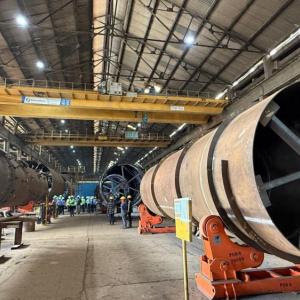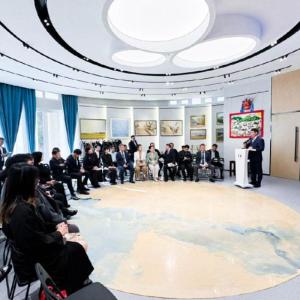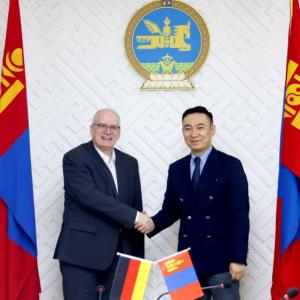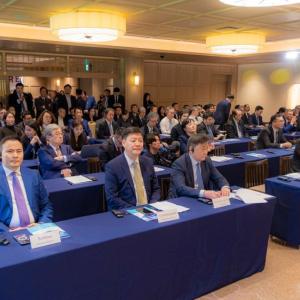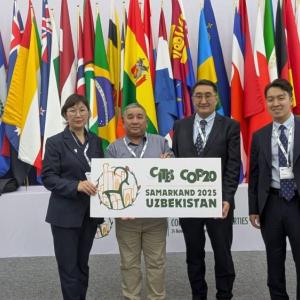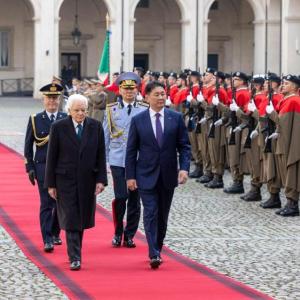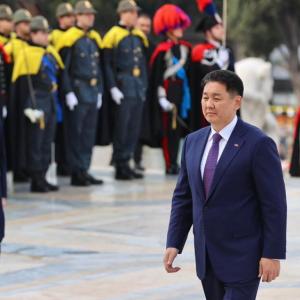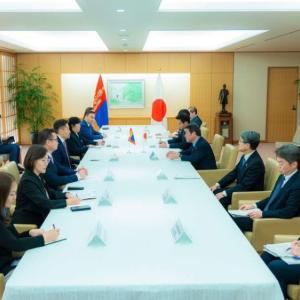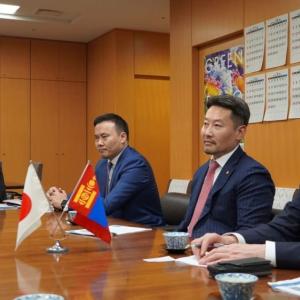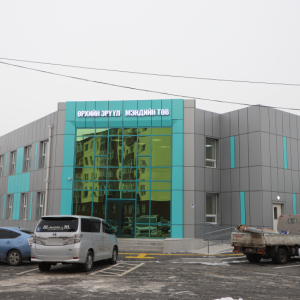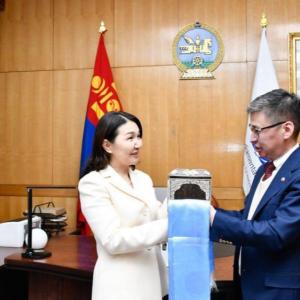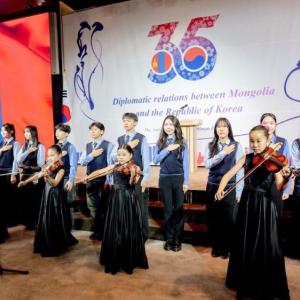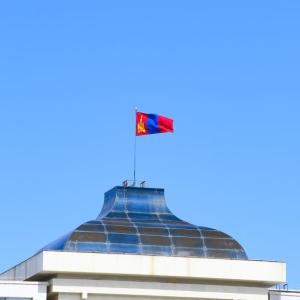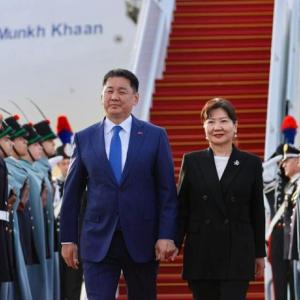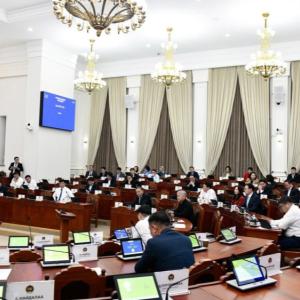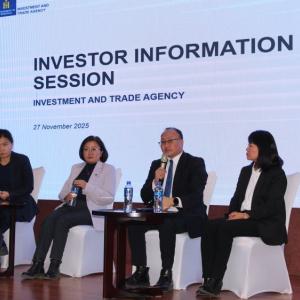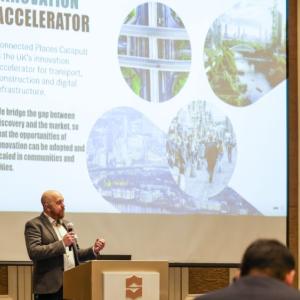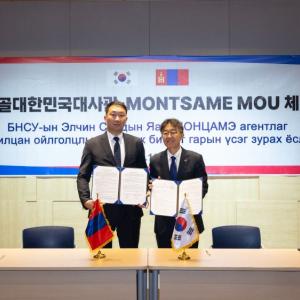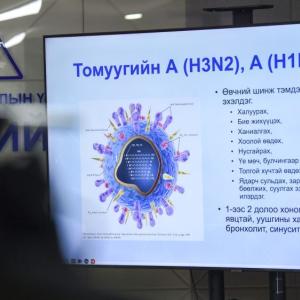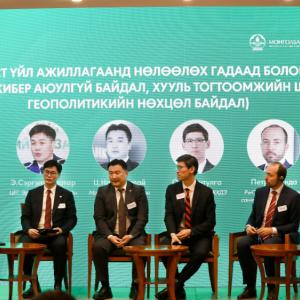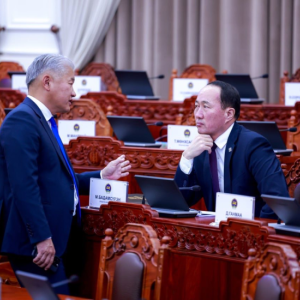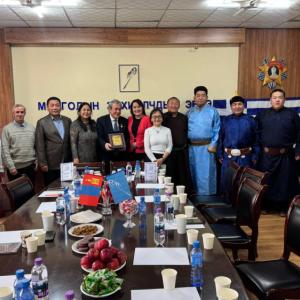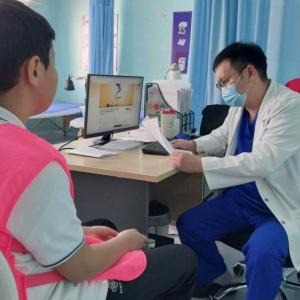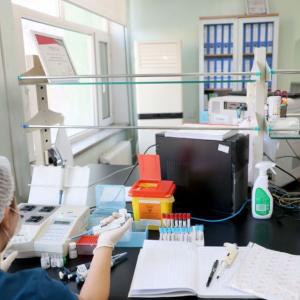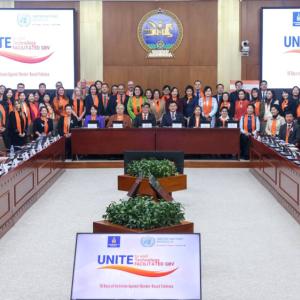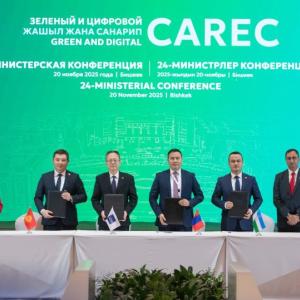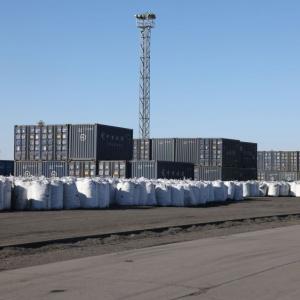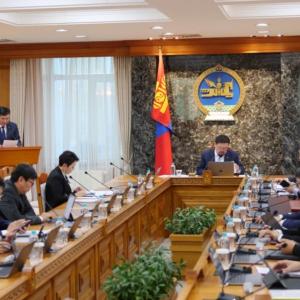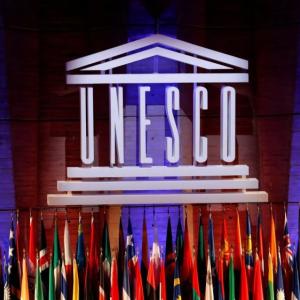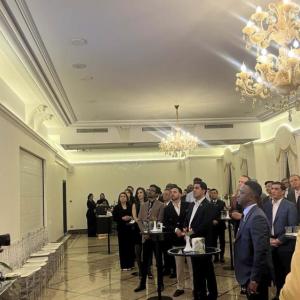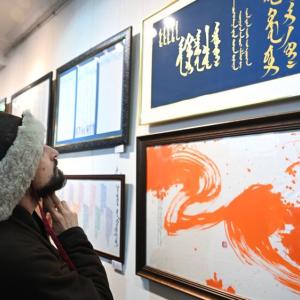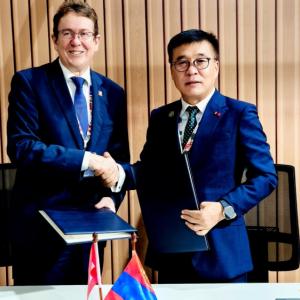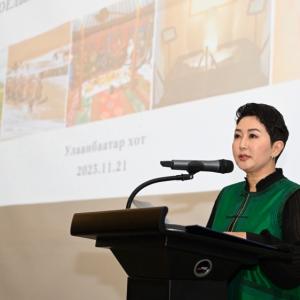Prime Minister presents government's actions in light industry
Economy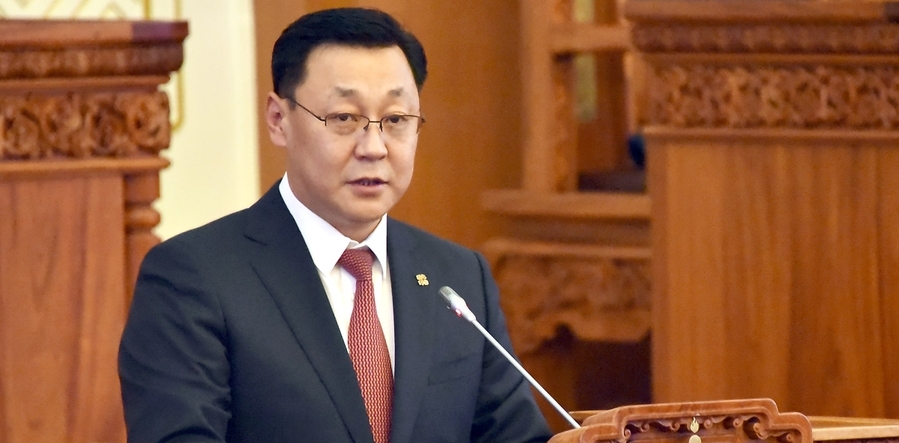
Ulaanbaatar /MONTSAME/ During the Parliament’s plenary session held on May 26, Prime Minister J.Erdenebat presented the Government’s activities towards developing light industry.
According to PM J.Erdenebat, the economic growth has shown increases in the first quarter of 2017. The major products in the sector, namely cashmere, wool, leather, textiles, wood and carpentry products constitute 60 percent of the total output of the industry. As of 2016, around 2 thousand factories were operating in this field, providing workplace for 48.8 thousand people.
According to PM J.Erdenebat, the economic growth has shown increases in the first quarter of 2017. The major products in the sector, namely cashmere, wool, leather, textiles, wood and carpentry products constitute 60 percent of the total output of the industry. As of 2016, around 2 thousand factories were operating in this field, providing workplace for 48.8 thousand people.
By an estimate, around 9.4 tons of cashmere, 29 thousand tons of wool and 14 million skins and hides are expected to be prepared in 2017. The main focus for the light industry is to process 30-60 percent of these materials into final products, increasing the production to MNT 4 trillion and total sales to MNT 3.5 trillion by the end of 2017.
As of today, a total of 34 factories is processing leather in Ulaanbaatar and around 200 SMEs are producing final products with hides and skins in rural areas, providing jobs for 5.6 thousand people. In 2015, the local tanneries have processed 2 million raw skins and hides and produced final products worth MNT 169.6 billion. And at the end of 2016, the total production of processed leather was at 1.6 million, while semi-processed leather production reached 4.3 million and the total sales increased by 12% to MNT 259.5 billion. Out of the latter number, MNT 182 billion is comprised of processed raw skins and hides, while the remaining MNT 77.7 billion is of final products.
Also, with an aim to support small and medium size enterprises in the non-mining sectors to strengthen their export capabilities and expand access to exports market, “Export Development Project” has started being implemented since March, 2017 with the cooperation of World Bank.
Mongolia imported MNT 204 billion worth of cosmetics and household chemical products in 2016, which is 90 percent of the total domestic consumption. Therefore, the Government is supporting SMEs by exempting them from customs and value added tax, providing equipment leasing opportunities through banks.
PM J.Erdenebat also mentioned to implement policies to further support SMEs and provide a favorable environment for investment. As stated on the Government’s Action Plan for 2016-2020, a hundred factories in the export-oriented sectors will be established in rural areas to substitute imports through “Industrialization 21:100” program. In consideration of the area’s resource output, human resource and development plan, these factories will improve living conditions in the areas through their profit.
B.Tugsbilig
 Ulaanbaatar
Ulaanbaatar






